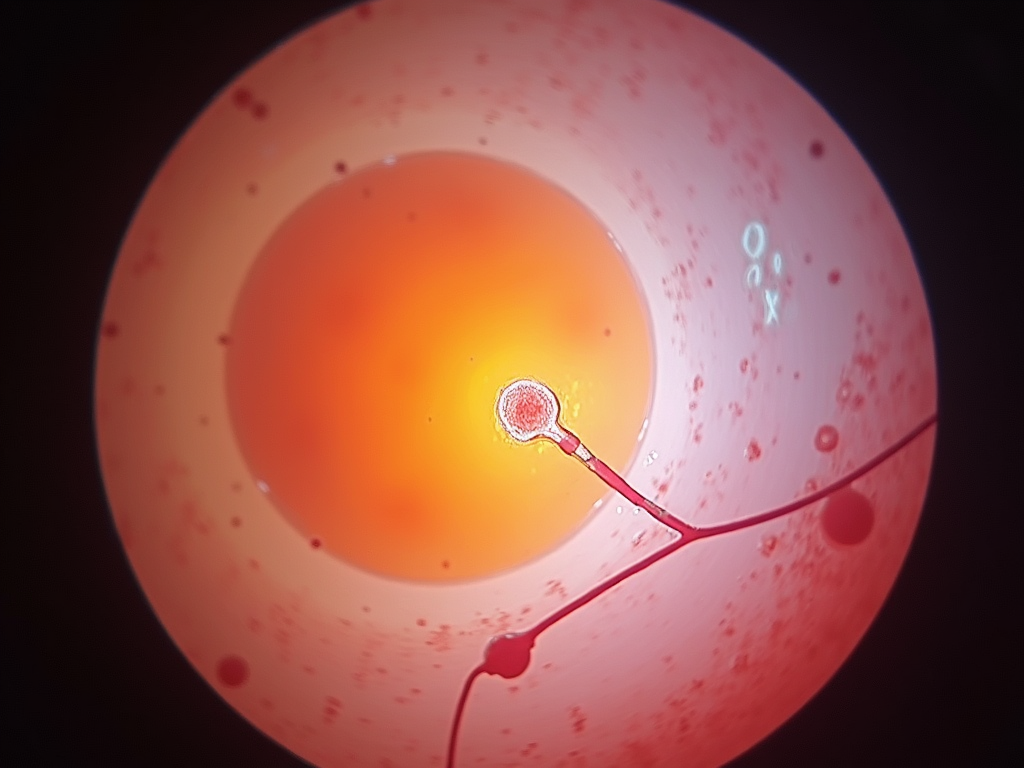Modern Fertility Treatments Explained
March 14, 2025, 8:05 a.m.
Modern fertility treatments have revolutionized the way we approach infertility, offering hope to millions of individuals and couples worldwide. From in vitro fertilization (IVF) to advanced fertility preservation techniques, these medical interventions have made it possible for many to achieve their dream of parenthood. In this article, we'll explore the most common and effective fertility treatments available today, providing you with a comprehensive understanding of how they work and who they can help.
In Vitro Fertilization (IVF)
IVF is perhaps the most well-known fertility treatment. It involves retrieving eggs from a woman's ovaries and fertilizing them with sperm in a laboratory. The resulting embryos are then transferred back into the woman's uterus, where they can implant and grow.
IVF is often recommended for couples who have been trying to conceive for a year or more without success, or for those with specific medical conditions that affect fertility, such as blocked fallopian tubes or low sperm count.
The process begins with ovarian stimulation, where the woman takes hormones to encourage her ovaries to produce multiple eggs. These eggs are then retrieved through a minor surgical procedure. Meanwhile, the male partner provides a sperm sample, which is used to fertilize the eggs in the lab.
Once fertilization occurs, the embryos are monitored for several days before being transferred to the uterus. Any remaining healthy embryos can be frozen for future use, a process known as fertility preservation.
IVF is a multi-step process that typically takes several weeks to complete. After ovarian stimulation and egg retrieval, the eggs are fertilized in the lab. The resulting embryos are then cultured for 3-5 days before being transferred to the uterus. In some cases, preimplantation genetic testing (PGT) can be performed to screen for genetic disorders.
Success rates for IVF vary widely. For women under 35, the live birth rate per cycle is around 40%, but this decreases with age. Factors such as the quality of the embryos, the woman's age, and the cause of infertility all play a role.
While IVF is generally safe, there are potential risks, including ovarian hyperstimulation syndrome (OHSS), multiple pregnancies, and ectopic pregnancy. It's important to discuss these risks with your doctor.

Intracytoplasmic Sperm Injection (ICSI)
ICSI is a specialized form of IVF used primarily for male factor infertility. It involves injecting a single sperm directly into an egg to facilitate fertilization. This technique is particularly useful when there are issues with sperm quality or quantity.
ICSI is often recommended when:
- The male partner has a low sperm count
- The sperm have poor motility (movement)
- There are abnormalities in sperm shape
- Previous IVF attempts have failed due to fertilization issues
The process is similar to traditional IVF, with the key difference being the method of fertilization. Instead of allowing the sperm to penetrate the egg naturally, a single sperm is selected and injected directly into the egg using a fine glass needle.
ICSI has significantly improved the chances of fertilization for couples facing male infertility, with success rates comparable to traditional IVF.

Fertility Preservation Options
Fertility preservation involves techniques that allow individuals to save their eggs, sperm, or embryos for future use. This is particularly important for those who may face fertility challenges due to medical treatments, age, or other factors.
Common fertility preservation techniques include:
- Egg Freezing: Women can have their eggs retrieved and frozen for later use. This is often recommended for women who are about to undergo cancer treatment or who wish to delay childbearing.
- Sperm Freezing: Men can freeze their sperm for future use, which is useful for those facing medical treatments that might affect fertility or for those who want to preserve their fertility for other reasons.
- Embryo Freezing: Couples undergoing IVF can freeze any unused embryos for future cycles, reducing the need for additional egg retrievals.
Fertility preservation offers a way to safeguard one's ability to have children in the future, providing peace of mind and flexibility.
Fertility preservation is not just for those facing medical treatments. It's also an option for individuals who wish to delay childbearing for personal or professional reasons. Egg freezing, in particular, has become increasingly popular among women in their 30s who want to preserve their fertility for the future.
However, fertility preservation can be expensive, and success is not guaranteed. The quality of frozen eggs or sperm can vary, and not all frozen embryos will result in a live birth. It's essential to have realistic expectations and to discuss the potential outcomes with a fertility specialist.

Advanced Fertility Preservation Techniques
In addition to the standard fertility preservation options, there are more advanced techniques available for specific situations:
- Ovarian Tissue Freezing: This involves removing and freezing ovarian tissue, which can later be transplanted back into the body to restore fertility. This is particularly useful for young cancer patients who cannot undergo egg freezing.
- Testicular Sperm Extraction (TESE): For men who do not have sperm in their ejaculate, sperm can be extracted directly from the testicles and used for IVF or ICSI.
These advanced techniques offer hope to those with unique fertility challenges, expanding the possibilities for future parenthood.

Understanding Infertility
Infertility is defined as the inability to conceive after one year of unprotected intercourse. It affects both men and women and can be caused by a variety of factors, including:
- Age
- Hormonal imbalances
- Structural issues (e.g., blocked fallopian tubes)
- Genetic factors
- Lifestyle factors (e.g., smoking, obesity)
Modern fertility treatments are designed to address these underlying causes, offering tailored solutions for each individual or couple. It's important to consult with a fertility specialist to determine the best course of action.
| Cause | Description |
|---|---|
| Age | Fertility declines with age, particularly for women over 35. |
| Hormonal Imbalances | Issues with hormones can affect ovulation or sperm production. |
| Structural Issues | Blocked fallopian tubes or uterine abnormalities can prevent conception. |
| Genetic Factors | Genetic disorders can impact fertility. |
| Lifestyle Factors | Smoking, obesity, and excessive alcohol consumption can reduce fertility. |
Choosing a Fertility Clinic
Selecting the right fertility clinic is a crucial step in the journey to parenthood. Here are some factors to consider:
- Success Rates: Look for clinics with high success rates for your specific treatment.
- Experience: Choose a clinic with experienced specialists who have a track record of success.
- Technology: Ensure the clinic uses the latest technology and techniques.
- Support: Consider the level of emotional and psychological support offered.
- Cost: Understand the costs involved and whether the clinic offers financing options.
When evaluating fertility clinics, it's also important to consider the clinic's approach to patient care. Some clinics offer holistic services, including counseling, nutrition advice, and acupuncture, which can complement medical treatments. Additionally, look for clinics that provide clear communication and support throughout the treatment process.
Cost is another significant factor. Fertility treatments can be expensive, and insurance coverage varies. Some clinics offer financing options or package deals for multiple cycles, which can help manage costs.
It's also helpful to read reviews and seek recommendations from others who have undergone treatment.

Summary
Modern fertility treatments have opened up new possibilities for individuals and couples facing infertility. From IVF and ICSI to advanced fertility preservation techniques, these interventions offer hope and solutions tailored to each unique situation. By understanding the options available and choosing the right clinic, you can take proactive steps towards achieving your dream of parenthood.
For more information, explore the recommended readings below.